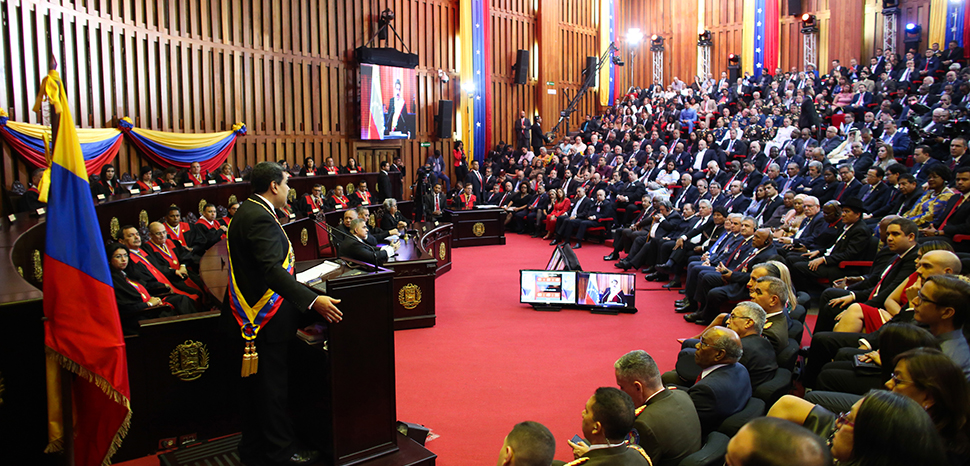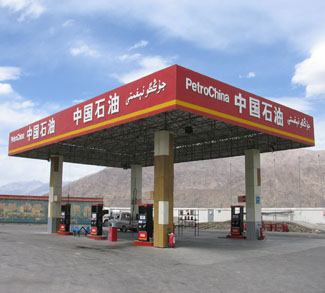In a previous article published on February 8, I analyzed Guyana’s latest brush with Venezuela. The border spat, which flared up toward the tail end of 2023, was manufactured by the Nicolás Maduro regime. It brought these two (contrasting) petrostates closer to a new crisis, making things worse for Caracas diplomatically.
Not so for Georgetown, as my article contends in three steps. It concludes that Caracas’ heavy-handed, antagonistic foreign policy-related antics backfired, proving ineffective and counterproductive.
For one thing, and in a diplomatic move that will resonate for years to come, Georgetown upset Caracas’ wider regional strategy. For another, it mostly weathered the onslaught.
However, my article’s conclusion also signals a cautionary note. It underscores that the risk of a Guyana-Venezuela showdown does not go away and that greater, fast-moving risks to that country’s security still exist.
In recent days, within sight of Guyana’s western border, indications (reportedly made public by Guyanese authorities) are that Venezuelan military maneuvers are afoot. This reported build-up of Venezuelan forces near that border, now receiving greater coverage by the international media, has come under scrutiny relative to a recently minted agreement to de-escalate tensions between these two South American neighbors.
It is noteworthy that pursuant to the terms of the Joint Declaration of Argyle for Dialogue and Peace between Guyana and Venezuela—and in the context of the first meeting of the Joint Commission—on January 25th, the Foreign Ministers of Guyana and Venezuela met in Brasilia. Those talks were facilitated by Brazil’s Foreign Minister, with representatives of the Community of Latin American and Caribbean States and the United Nations on hand as observers.
This reported Venezuelan saber-rattling has cast a shadow over the first tentative steps on the previously agreed path of the aforementioned Joint Commission-driven process which, as currently configured, may falter.
It is telling that—according to a timely piece of analysis (titled ‘Miscalculation and Escalation over the Essequibo’) published by a leading Washington-based think tank—Caracas is employing a ‘compellence strategy’ vis-à-vis the border controversy. This, in the view of one of the authors, bears the hallmark of a “duplicitous policy” on the part of the Maduro regime.
Reportedly, leaders of the Caribbean Community (CARICOM) bloc have set their sights on advancing a sweeping response. In that regard, backing down is not in the cards for Guyana, or, for that matter, this regional grouping of small states.
That said, with a major joint natural gas project recently clinched, Trinidad and Tobago is trying to walk the tightrope between Georgetown and Caracas. The agreement, which Washington had to scrutinize, caused disquiet in Georgetown.
However, and insofar as several regional states are pursuing diplomatic gambits geared toward deepening relations with Venezuela, that reaction from Georgetown is not illustrative of the view in CARICOM member states writ large vis-à-vis Venezuela-connected energy deals. Even as Guyana has rallied sister CARICOM members to stand up to Venezuela’s Essequibo-related geopolitical bullyism and bad-faith diplomacy, those countries are not doing themselves any favors by accentuating policy differences on such deals.
For all the talk about their differing records in diplomatically treating with Venezuela, though, in line with their respective national interests, CARICOM member states are all of one mind about Caracas’ latest scheme aimed at Guyana: It may be Caracas’ riskiest geopolitical bet yet, given the stakes, interests and players involved. (I outline these issues in my aforesaid article.)
It represents a test not just to Guyana, but to CARICOM, as well as to the regional security and international orders.
Inasmuch as there are apparent divisions within the CARICOM grouping over Venezuela, then, Georgetown must put the latest provocation by Caracas into perspective by paying heed to the long-standing priority of the bloc’s strategy relative to the wider region. Namely, the intention is for the latter to remain a Zone of Peace.
That international relations approach and a combination of support from key global and regional powers, along with the backing of the processes of international cooperation and multilateralism, all play a vitally important role in seeing Guyana through to its Essequibo-related foreign policy endgame; along the way, thwarting Caracas’ hawkish posturing.
This in the context of Guyana’s headline grabbing, international law-centric foreign policy journey in respect of the International Court of Justice (ICJ). The ICJ—it is widely believed—will furnish the legitimate, definitive resolution to the border controversy.
Caracas’ provocation of the hour, then, is also the latest reminder that—although the tide of history is in Georgetown’s favour—the twists and turns of the journey in question are aplenty.
Georgetown needs to keep its nerve now, recognizing that the border controversy is now part of a familiar tangle of protracted global geopolitical rivalry.
The views expressed in this article belong to the authors alone and do not necessarily reflect those of Geopoliticalmonitor.com.




